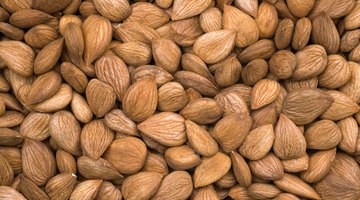Carrots During Breastfeeding
When you're breastfeeding, anything you ingest will reach your baby. If you're on a carrot kick because you're trying to lose weight or just to increase your veggie intake, your baby will get a good dose of the ingredients in carrots as well. While carrots are a healthy food, full of vitamins and minerals, allergies to carrots can occur and could affect your baby. Carrots can also cause harmless color changes in your baby's skin. Eating carrots might also make them more palatable to your baby in solid foods.
Carotenemia
Carrots contain large amounts of beta-carotene, a precursor to vitamin A. Beta-carotene can accumulate in your skin if you eat a large amount of foods high in the nutrient. Beta-carotene can also pass through your breast milk and turn your baby a bit orange. You may notice this harmless color change particularly on the baby's palms and soles of the feet. The whites of his eye should not turn yellow; yellow sclera indicate jaundice, a far more serious medical condition that requires immediate evaluation. Cutting back on your carrot consumption should decrease carotenemia within three to four weeks, according to Dr. B.D. Schmitt of the Children's Physician Network. Let your doctor know if your baby turns yellow, so he can eliminate more serious causes of yellow skin.
Allergy

Should Babies Eat Lemons?
Learn More
Babies can have allergies to the foods you eat while nursing. The tendency to have food allergies runs in families. Your baby may not have the same food allergies as anyone else in the family; it's the tendency toward allergy, not the specific food allergies, that your baby inherits. Around 6 to 8 percent of infants and children have some type of food allergy, according to the Mayo Clinic. Many outgrow their allergies as they get older. A baby with a carrot allergy may have abdominal pain that makes him irritable, gassy or bloated. He may vomit or have diarrhea. He could also develop facial swelling, especially around his eyes, mouth or lips. Allergies can also cause respiratory symptoms such as wheezing, difficulty breathing, and runny or stuffy nose. If your baby develops allergic symptoms, notify his doctor or seek immediate medical attention if he has trouble breathing.
Carrots and Food Preferences
Exposing your child to foods such as carrots in breast milk may make her more likely to enjoy them when you start solid foods. An article published in the October 2006 issue of "Food Quality and Preference" by Judy Mennella of the Monell Chemical Senses Center reported that babies exposed to carrots in breast milk or before birth were more likely to eat carrot-flavored cereal without negative facial expressions.
Considerations

Foods Moms Eat That May Upset a Nursing Baby's Stomach
Learn More
Carrots serve as an excellent source of vitamin A and other nutrients necessary for your baby's growth. If you love carrots, feel free to indulge. If your baby does develop carotenemia, his color will return to normal when he's 2 or 3 years old, even if you don't stop eating carrots, according to Schmitt.










